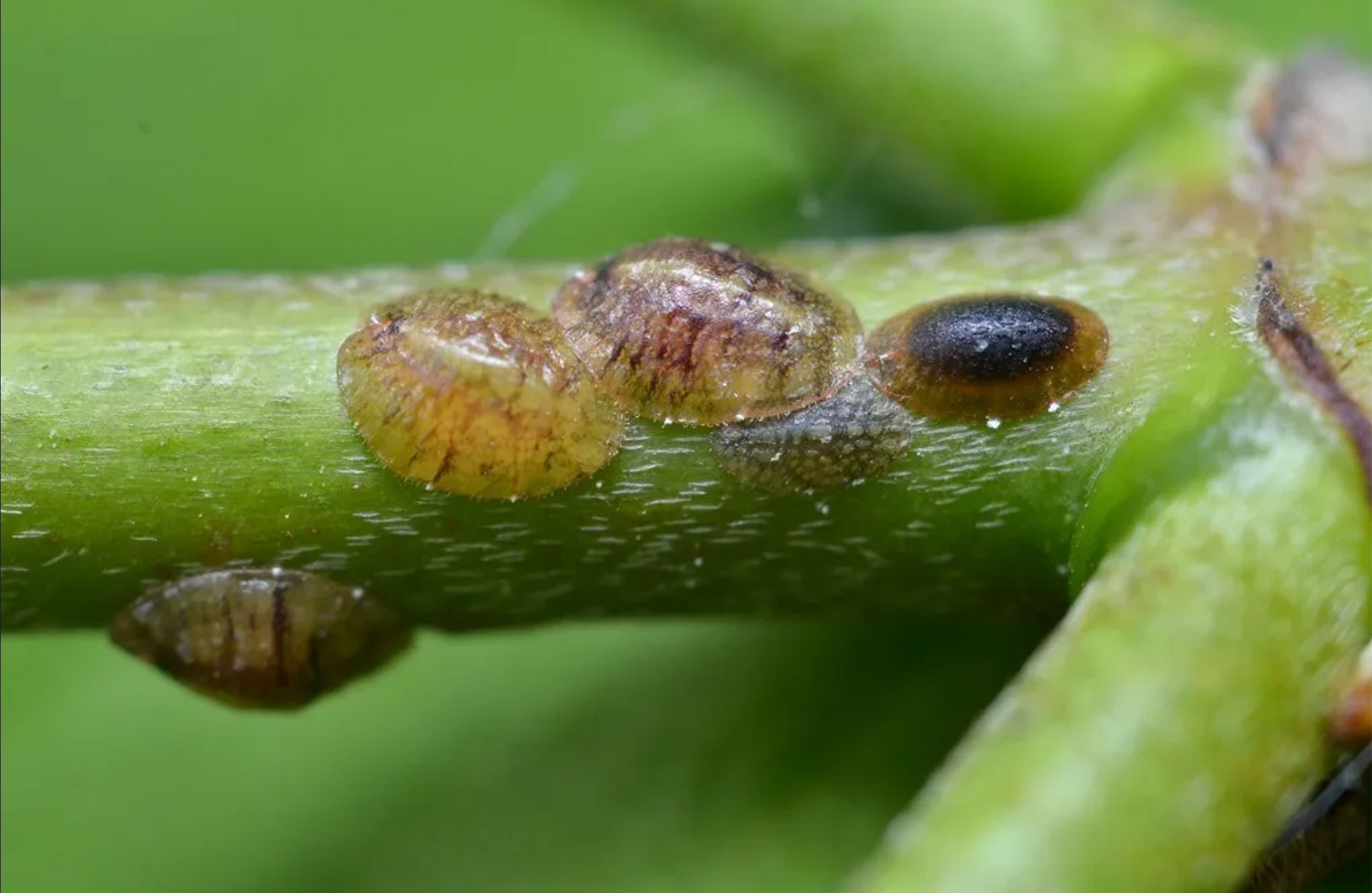Scale insects can be a frustrating pest for Melbourne gardeners. These sap-sucking insects not only weaken plants but can also encourage secondary infestations and diseases. Understanding how to identify, manage, and treat scale infestations is crucial for maintaining a healthy, thriving garden.
What Are Scale Insects?
Scale insects are small pests that latch onto plants, feeding on sap through their needle-like mouths. They appear as small bumps on stems, leaves, and fruits, often mistaken for natural plant features. These pests come in two main forms: soft scale and hard (armoured) scale.
- Soft scale insects are covered in a waxy coating and excrete honeydew, a sticky substance that attracts ants and encourages the growth of sooty mould.
- Hard scale insects have a protective, shell-like covering and do not produce honeydew, making them harder to detect.
Scale insects often cause yellowing leaves, stunted growth, and in severe cases, plant death. Early identification is key to effective control.
The Relationship Between Ants and Scale Insects
Ants and scale insects have a mutually beneficial relationship that complicates scale management. Ants are attracted to the honeydew excreted by soft scale insects, using it as a food source. In return, ants protect scale insects from natural predators like ladybirds and parasitic wasps.
This symbiotic relationship means that controlling ants is often a necessary step in managing scale infestations. Without the protection of ants, scale insects are more vulnerable to predators and environmental factors.
How to Identify Scale Infestations
Scale infestations often go unnoticed until significant damage occurs. Look for the following signs in your Melbourne garden:
- Small, immobile bumps on stems, leaves, or fruits
- Yellowing, curling, or wilting leaves
- Sticky, shiny residue (honeydew) on plants or the ground below
- Black, sooty mould growing on leaves
- Increased ant activity around specific plants
If you spot these signs, inspect your plants closely to confirm the presence of scale insects.
Methods to Treat Scale Insects
Treating scale infestations effectively requires a combination of physical, chemical, and biological methods. Below are the best strategies for Melbourne gardens:
- Manual Removal
- For minor infestations, scrape off scale insects with either your finger, a soft toothbrush or a cloth dipped in soapy water.
- Prune heavily infested branches and dispose of them away from the garden.
- Regularly inspect plants to catch new infestations early.
- Encourage Natural Predators
- Introduce or attract beneficial insects like ladybirds, lacewings, and parasitic wasps, which feed on scale insects.
- Avoid using broad-spectrum insecticides that can harm these beneficial species.
- Plant a variety of flowering plants to provide nectar and shelter for these predators.
- Control Ant Populations
- Use ant baits to reduce ant numbers around your garden.
- Apply a sticky barrier around the base of infested plants to prevent ants from reaching scale insects.
- Remove or prune plants that act as bridges for ants to travel between the ground and the canopy.
- Use Horticultural Oils
- Apply horticultural or neem oil, which smothers scale insects and disrupts their life cycle. These oils are safe for plants and non-toxic to beneficial insects when used as directed.
- Ensure thorough coverage of infested areas, including the undersides of leaves.
- Apply during cooler parts of the day to avoid sunburn on plants.
- Insecticidal Soaps
- Use insecticidal soaps specifically designed to target soft-bodied pests like scale insects. These soaps are effective on young, soft scale insects and can be reapplied as needed.
- Chemical Treatments
- For severe infestations, systemic insecticides can provide effective control by targeting insects as they feed on sap. However, use these sparingly and as a last resort to minimise harm to beneficial insects and the environment.
- Always follow label directions and opt for products approved for use in home gardens.
Preventing Scale Infestations
Prevention is always better than cure when it comes to managing pests in your Melbourne garden. Here are some tips to keep scale insects at bay:
- Maintain Plant Health: Healthy plants are less vulnerable to infestations. Water and fertilise your plants appropriately, and ensure they have good air circulation.
- Inspect New Plants: Before introducing new plants to your garden, check them thoroughly for pests.
- Regular Monitoring: Keep an eye on your plants for early signs of scale or ant activity.
- Integrated Pest Management (IPM): Combine various pest control methods, such as natural predators, ant control, and cultural practices, to minimise the risk of scale outbreaks.
Conclusion
Scale insects can pose a significant challenge for Melbourne gardeners, but with proper identification and management strategies, you can protect your plants and enjoy a lush, thriving garden. By addressing the relationship between ants and scale, employing a combination of physical, biological, and chemical treatments, and prioritising prevention, you’ll be well-equipped to handle these persistent pests. Happy gardening!



